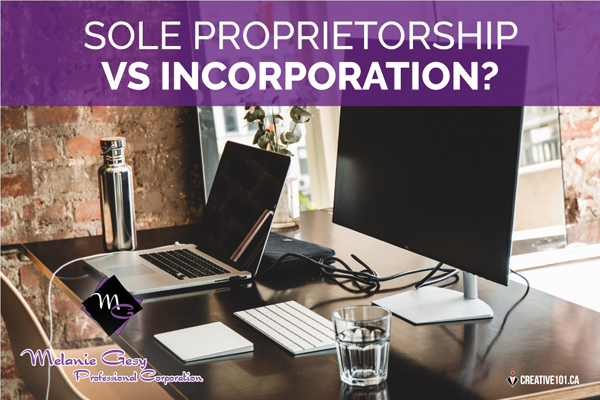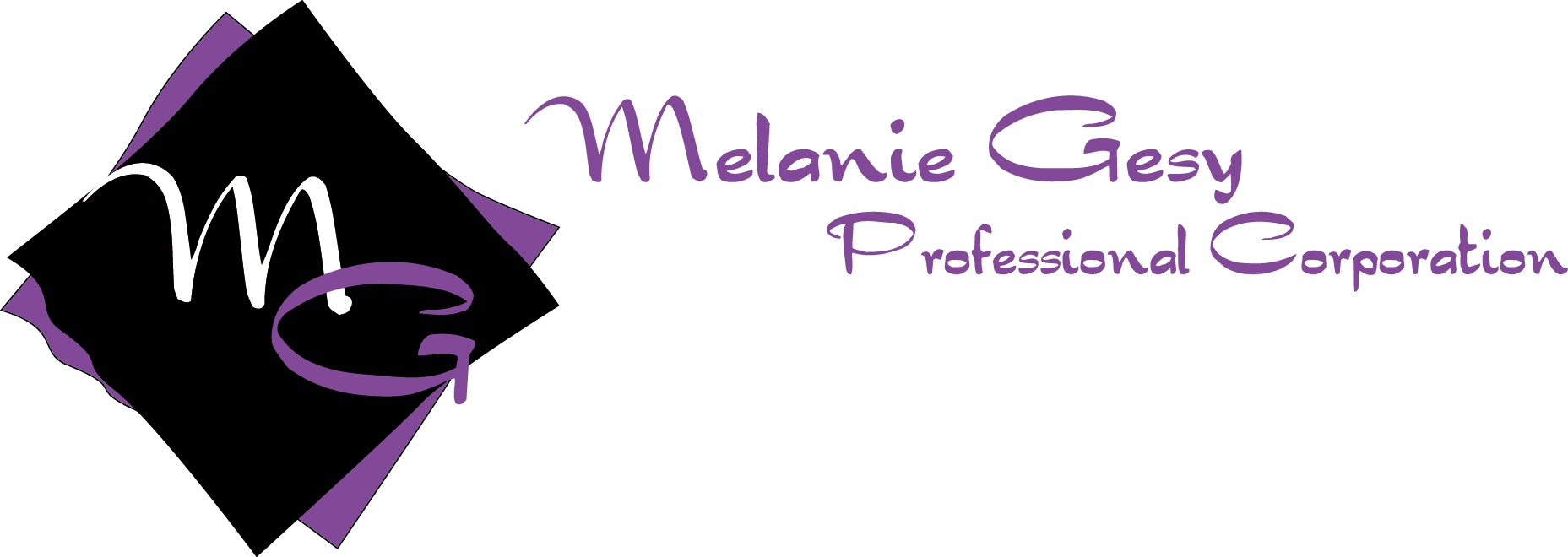MELANIE GESY NEWS

Should you incorporate?
Here are some pros and cons of it all.
Thursday, July 07, 2022
Your small business has been growing (or you are just starting) and you could be wondering when you should make the leap... and incorporate it.
There are pros and cons to doing this and if you do it too early, it may not be worth it. Now, if your business is bringing in more than you need to enjoy a good lifestyle, then it may be time. For example, $100,000 may be the number you're waiting for, but it will be different for everyone. You need to consider the costs related to incorporating, as well. It may be beneficial to remain a sole proprietorship, if you can't justify them.
Some advantages to incorporation:
- The big one... tax deferral (and some small tax savings). Corporations typically have a lower tax rate than a person would. The great thing is that if you save taxes, you can use deferred tax dollars to grow your business. An example would be:
- Jim operates a business in Alberta that earns $160,000/year. Jim only needs $60,000/year to live well. As a proprietorship, he would pay personal taxes on the full amount at about 28% (the average rate for that income level). However, a corporation would only pay 9% tax. You can then withdraw what you need and only pay personal taxes on the amount you withdraw. The savings/deferral occurs when you can leave the extra income in the company.
- Income splitting. While this isn't as much of an advantage since the tax laws changed in 2018, it is still a good way to save money. The spouse (or other family members) needs to be an active member in the business for this to work to your advantage.
- Limited liability. This is for security in the instance that someone wants to sue you. On your own, this would effect you directly. As a corporation, they can only go after the business and it's assets.
- Estate Planning. You can transfer assets to other people, should something happen to you because it is a separate entity.
Disadvantage would be:
- Costs:
- Tax time: As a proprietorship, your business income is included as a schedule on your personal income tax return, which means you only have one tax return to file. If you have prepared your own personal tax returns in the past, you can continue doing so if you are comfortable with it. Or can you hire an accountant to prepare your personal tax return. When you incorporate, the company has it's own corporate income tax return which is a lot more complicated and follows a completely different part of the Income Tax Act, so you will need to hire an accountant to prepare the return for you.
- Incorporation: There are costs involved for you to incorporate. I always recommend that you hire a lawyer to incorporate the company and set up the relevant documents. You can incorporate it yourself, but that could end up costing you more in the long run it's not done properly and you have to fix it later. Always cheaper to do it right the first time.
- Record keeping: This will be way more involved for a corporation. Minute books, additional forms and shareholders mean increased bookkeeping, legal and accounting fees.
- Losses: If your incorporated business has a net loss for the year, you can only claim the loss against past or future corporate earnings. If you have a loss as a sole-proprietor, you can claim that loss against other income in the same year, or from future personal earnings.
- Taxes: If you incorporate before your business earnings are high enough, it could mean that you will pay more taxes at the end of the year. As an individual, there are tax credits you can use. This is a lot more rare, but it can happen depending on your personal income situation.
Bottom line... it can be difficult to know when the best time to incorporate is. Don't just assume that it's the best way to save taxes because it doesn't always work out that way.
Contact me for some advice on your particular situation. Together, we can figure out the best timing.
Categories: Tips
Tags: taxes
taxes; incorporation
CRA
Chartered Accountant
security
alberta government
Canada
Government
Chartered Professional Accountant
alberta
bookkeeper
financial help
benefits
tax time help
Author: Melanie Gesy
Melanie Gesy graduated from the University of Alberta with a bachelor of commerce degree. She articled at a medium-sized firm where she gained knowledge and experience on small and medium sized companies. It was there that in 2006 she received her chartered accountant designation. In 2010 Melanie started her practice because she saw a need for friendly and affordable professional services for small businesses and entrepreneurial clients. Melanie has built her business around strong relationships with her clients and by helping them to grow and reach their goals.

